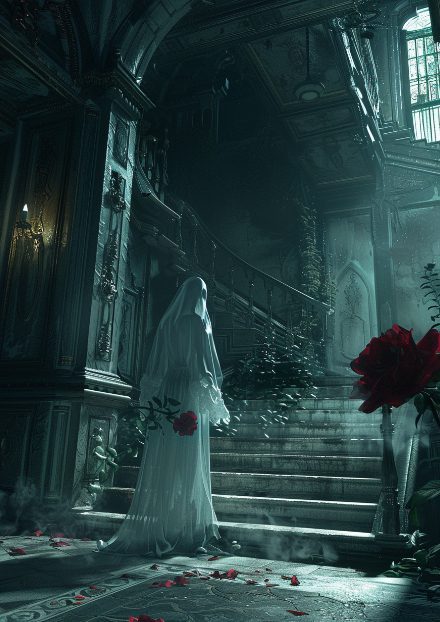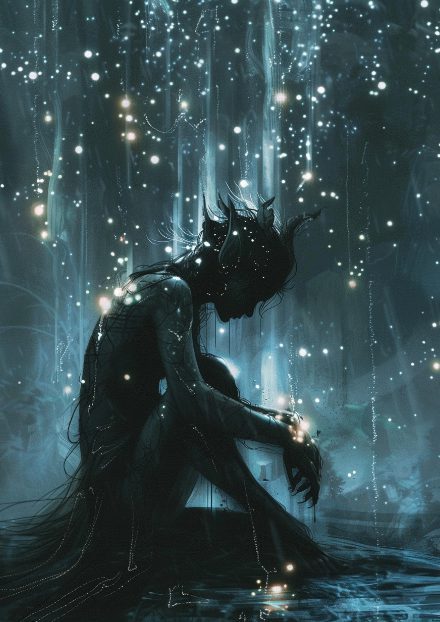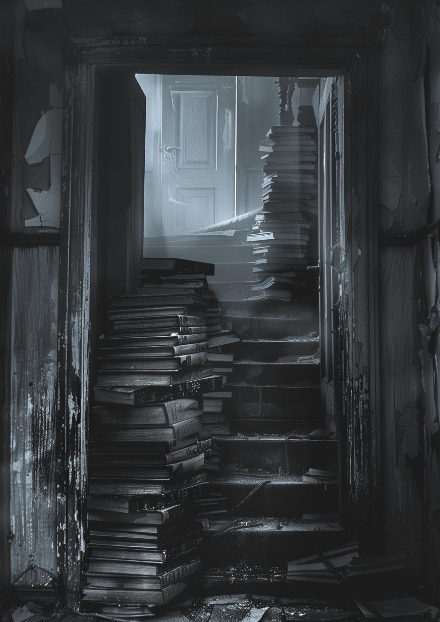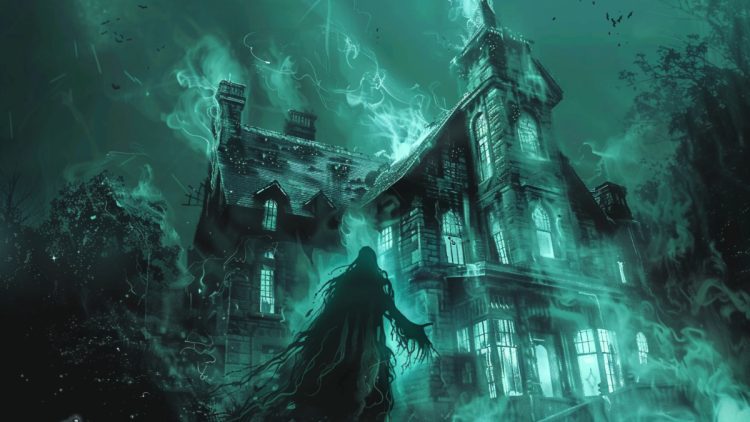Welcome to our last episode of the Fully Booked podcast focused on paranormal and supernatural fiction. But how did paranormal fiction get its start, and where is it these days? We’re taking this opportunity to chat about the evolution of the subgenre.
RelatedHappy Hauntings: 10 Great Paranormal Horror Books To Read This Year
Meaghan shares that she has been reading a lot of hockey romance books, which Shirin finds funny and very “Canadian.” Shirin then opens up about trying to read the popular Cruel Prince fantasy series by Holly Black after seeing it raved about everywhere. But she ended up finding the first book incredibly boring and had trouble connecting with the characters or plot. In fact, she and her friend both prematurely bought copies of the sequel as they assumed they’d want to dive right in after finishing the first installment. However, upon realizing neither of them actually liked Cruel Prince, they decided to return the unwanted second book.

Where did Paranormal Fiction Begin?
Getting back to the main topic, we discuss the evolution of paranormal fiction over time. Expanding on the evolution of paranormal tales, we note that while ghosts and hauntings remain popular, modern authors approach them with more complexity. Where classic ghost stories presented fairly one-dimensional “evil spirits” and didn’t encourage sympathy for them, contemporary writers are much more likely to portray ghosts as multi-faceted characters with clear backstories driving their actions.
So rather than just scaring readers with spooky entities, newer paranormal fiction makes us interested in the ghosts themselves – who they were, how they ended up haunting the living, and what unfinished business might allow them to find peace.
Additionally, newer paranormal tales frequently have an element of the main character working through psychological issues related to the haunting. Resolving long-held psychological tensions often paves the way to conquering or understanding the supernatural forces at play. Providing a few more recent examples, books like The September House or certain Riley Sager novels interweave haunted settings with damaged characters who work through traumatic issues in order to move forward. So there is often meaningful personal growth for protagonists in facing the paranormal head-on.
RelatedExploring the Doctor Sleep Adaptation – A Blend Of Kubrick & King
We discuss how the popularity of all things spooky has surged lately. Our generation is now older and feels nostalgic about things like Halloween from our childhoods, so we embrace those interests as adults. Elements of paranormal and magic also felt more commonplace in the media we consumed growing up, in shows like Goosebumps or books like Scary Stories to Tell in the Dark.
Paranormal Used to Mean Scary
When discussing the surge in popularity of horror and Halloween-themed entertainment, we reflect a bit more on how it stems from nostalgia as our generation grows older. For example, decorating with fun spooky motifs reminds us of beloved interests from childhood, so we embrace them again as adults to recapture that feeling.

Horror media similarly feels comforting and familiar after so much exposure growing up – we watched iconic scary movie franchises year after year, we read entire book series like Goosebumps that tapped into paranormal ideas, and even “safe” kids’ cartoons featured creepy holiday specials. So embracing the horror/supernatural genre feels like reconnecting with old friends in a way.
Considering fictional magic and supernatural elements blending with realism, we muse about that idea striking an aspirational chord too. Secretly believing cooler mythic aspects could truly exist makes our world feel more exciting and unlocks our imagination. There’s an appeal to the “what if” notion that average people might develop special abilities or secretly wield magic if only we knew where to look. It adds whimsy to ponder magic users covertly living among us.
Related10 Best Books For Your Bookclub In 2024

Final Thoughts
And we examine the draw of imagining oneself experiencing major paranormal events or alterations to reality. Picture bearing witness if vampires emerged or a zombie virus spread. How would you cope? What role would you play? It’s thrilling to mentally rehearse an apocalypse/supernatural scenario as an extreme hypothetical. The idea of personally interacting with magic or ghosts or mythical beings carries that same escapist rush – envisioning “what would I do if…?” makes dull reality a bit brighter.
Enjoying this episode? Be sure to check out all of our coverage of the genre over at https://fully-booked.ca/. We’re a listener-supported podcast! Please consider pledging and helping Fully Booked to grow our library over at https://ko-fi.com/fullybooked, or by leaving us a 5-star rating and review wherever you’re listening. Thanks, bookworms, and don’t forget to keep on reading.














